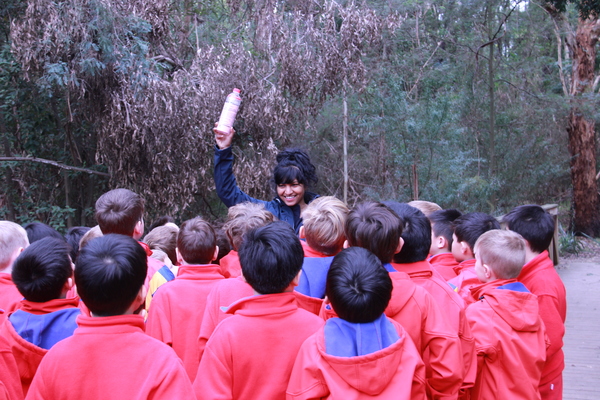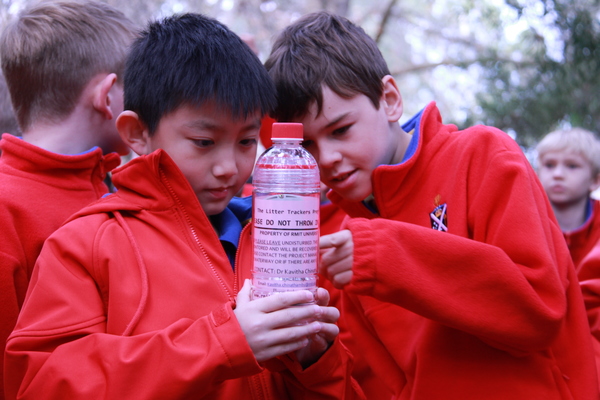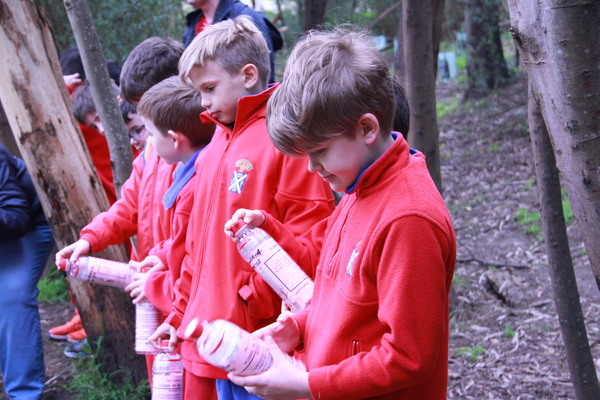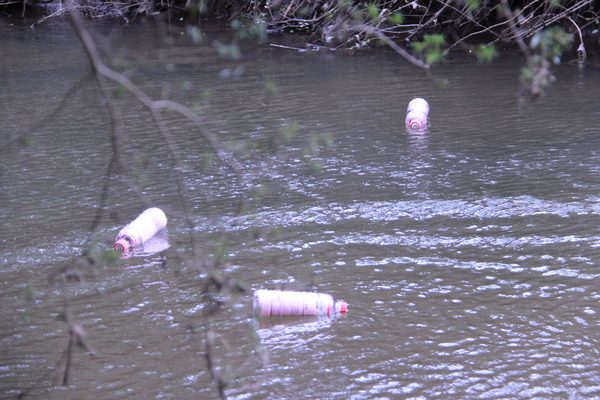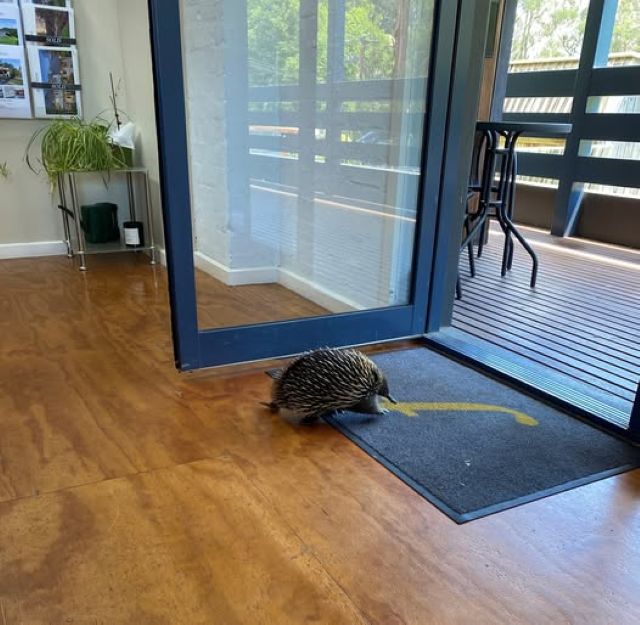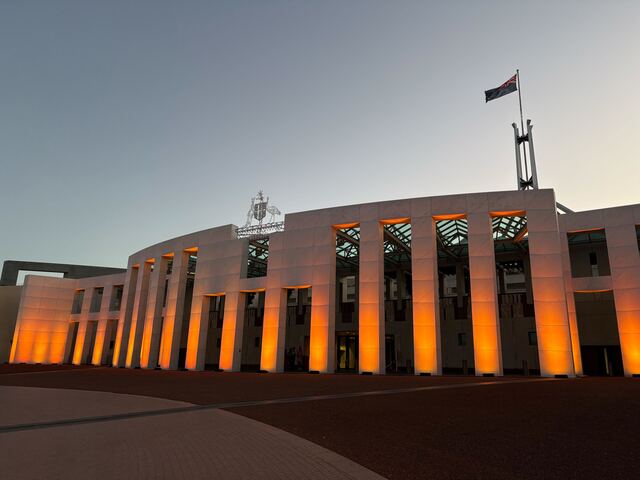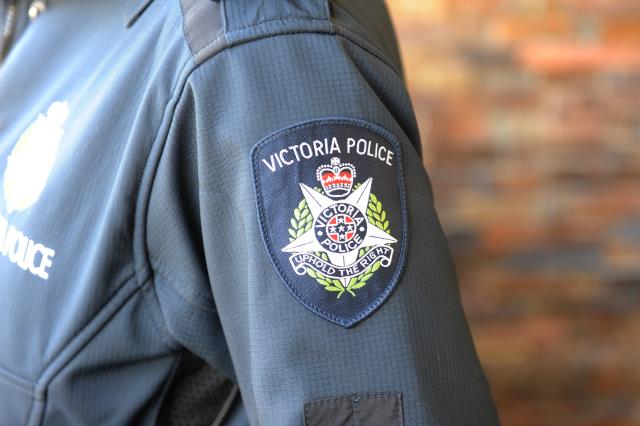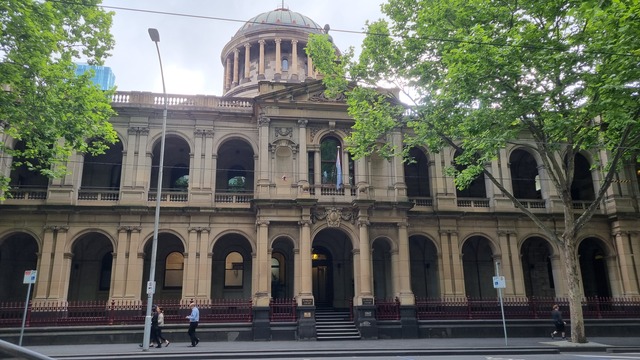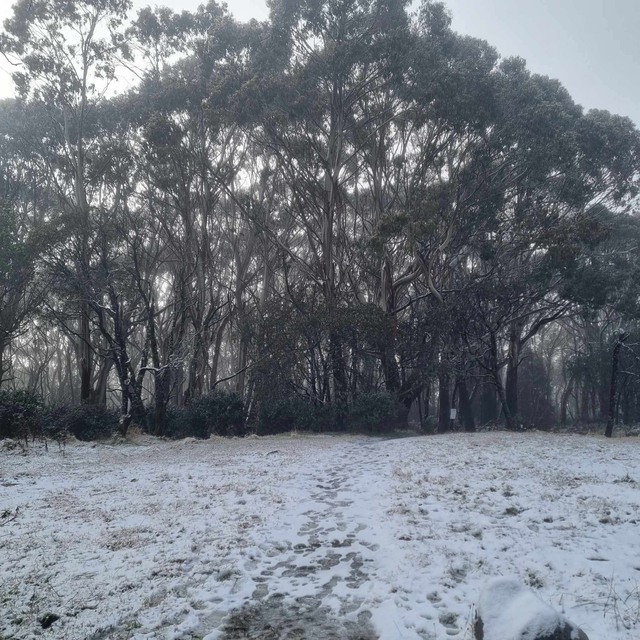A busload of tourists visiting Healesville threw their plastic litter into Watts River on Tuesday 23 July.
That’s what the scene probably looked like to those passing by Coronation Park as grade three Scotch College students assisted RMIT University aquatic scientist Kavitha Chinathamby and Karen Garth from Healesville Environmental Watch Inc. (HEWI) with a unique litter tracking project.
Five plastic bottles were launched into Watts River, each featuring GPS devices to track where they will flow to gain a better understanding of the movement of litter once it enters Victoria’s waterways.
In total, the Litter Trackers project will see 100 GPS equipped bottles enter creeks, rivers and other bodies of water across Victoria, where they will be tracked for four weeks before being collected for research.
Ms Chinathamby explained where these bottles might end up travelling.
“The bottles might just travel through Watts River and end up in the Yarra. Or they may get caught up or snagged in vegetation along the waterways.
“It could be trapped in the water system for a while until a big storm comes along.
“So this gives us the opportunity to find out what will happen to our litter.”
Ms Chinathamby said they will be looking at how far litter travels, how quickly it moves and locations where litter accumulates.
According to RMIT, 95 per cent of litter transported through stormwater drains into rivers, ultimately ends up on beaches in Port Phillip Bay.
From cigarette butts to plastic bottles, most of what is dropped on streets is washed into the stormwater system by rainfall.
“A plastic bottle was chosen because it represents the common type of plastic bottle that is discarded as litter in the environment… It’s a good representative of the type of litter that moves through the water system.
“It’s a wonderful opportunity to get the community and schools together to educate people about litter,” Ms Chinathamby said.
Ms Chinathamby and Ms Garth spoke to the schoolchildren about the impacts litter has on the environment, leading the Scotch College students to pick up some rubbish along their journey.
“It’s been important for the children to see how much litter there is… and hopefully that will create good behaviour so they know not to litter as they get older,” Ms Garth said.
The Litter Trackers project is funded by the Victorian government in collaboration with Melbourne Water and implemented by RMIT, Yarra Ranges Council and HEWI.
For more information about the project and to track the progress of the bottles, visit: http://www.rmit.edu.au/littertrackers

